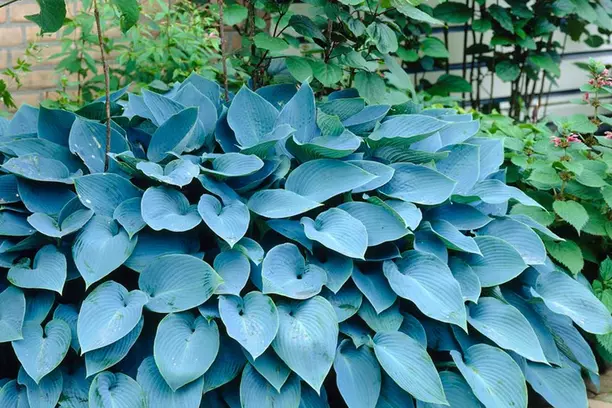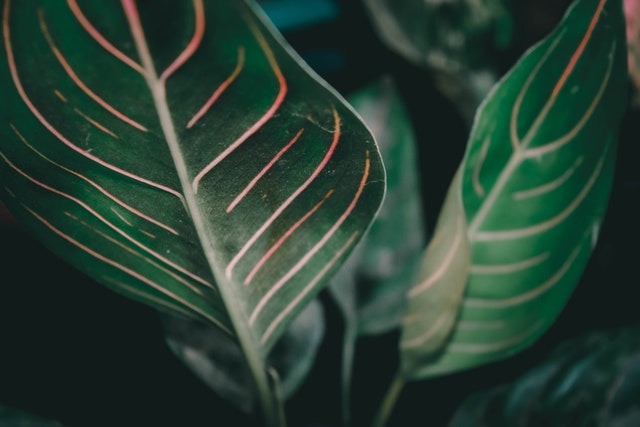Meyer lemon trees are a popular citrus variety known for their sweet and tangy flavor, making them a favorite among gardeners and chefs alike. However, like any plant, Meyer lemon trees can be susceptible to a variety of problems that can hinder their growth and fruit production. In this article, we will explore some common Meyer lemon tree problems and provide solutions to help you keep your tree healthy and thriving.
Understanding Meyer Lemon Tree
One of the most important things to understand about Meyer lemon trees is that they are citrus trees. This means that they require a lot of sunlight, water, and nutrients to grow properly. Meyer lemon trees should be planted in a location that receives at least 6 hours of direct sunlight each day. They also require well-draining soil that is rich in organic matter. If you are planting your Meyer lemon tree in a container, make sure that the container has drainage holes and that you are using a high-quality potting mix.
Meyer lemon trees are easy to grow and produce delicious fruit. You do not need to keep multiple plants for your tree to bear fruits. These trees do not need protection from temperatures below 20°F. However, they can experience problems that can impact their growth and fruit production.
By understanding the needs of your Meyer lemon tree and addressing any problems as soon as they arise, you can ensure that your tree remains healthy and productive for years to come.
Common Meyer lemon tree problems
Watering and Drainage Issues
Poor drainage and overwatering can lead to root rot, dieback, and other problems. It is important to plant the tree in well-draining soil and to avoid overwatering.
To prevent and manage watering and drainage issues, it is important to water the tree deeply but infrequently, allowing the soil to dry out between watering. Using a well-draining potting mix and ensuring proper drainage can also help prevent these issues. We have a separate article on how to revive an overwatered lemon tree.
In summary, water regularly for the first week or so then once or twice a week in the next couple of months to fix the overwatering problem.
Nutrient Deficiency Problems
Meyer lemon trees require adequate nutrients to grow and produce healthy fruits. Nutrient deficiencies can cause yellowing leaves, stunted growth, and low fruit production. Common nutrient deficiencies include iron, magnesium, and nitrogen.
To prevent and manage nutrient deficiencies, it is important to fertilize the tree regularly with a balanced fertilizer. Foliar sprays of kelp or lime can also provide additional nutrients.
Disease and Fungus Issues
Meyer lemon trees are susceptible to several diseases and fungus issues that can affect their growth and fruit production. Some of the common problems include yellowing of leaves, spots, and lesions caused by citrus canker, anthracnose, and greasy spot fungus. Viruses can also cause yellow halo-like lesions on the leaves.
To prevent and manage these issues, it is important to maintain good cultural practices. This includes planting the tree in well-draining sandy loam soil, avoiding overwatering and moist soil conditions, and providing adequate nutrients. Fungicides like sulfur can be used to control the spread of fungus.
Pollination and Fruit Production Issues
Meyer lemon trees require cross-pollination to produce fruits. Without adequate pollination, the tree may produce low-quality or no fruits at all.
To prevent and manage pollination and fruit production issues, it is important to provide adequate pollinators like bees or to hand-pollinate the tree using a paintbrush. Honeydew-producing pests like mealybugs can also affect fruit production and should be managed with insecticides.
Overall, by maintaining good cultural practices and addressing any issues promptly, Meyer lemon trees can produce healthy fruits and thrive in your garden.
Pest Problems and Solutions
Identifying Common Pests
Meyer lemon trees are susceptible to various pests, including aphids, scale insects, and spider mites. These pests can cause damage to the tree by feeding on its leaves and stems, leading to stunted growth, yellowing, and premature leaf drop.
Aphids are small, pear-shaped insects that can be green, yellow, or brown in color. They feed on the sap of the tree and secrete a sticky substance called honeydew, which can attract other pests and cause fungal growth. Scale insects are small, oval-shaped insects that attach themselves to the bark and feed on the sap of the tree. They can be difficult to spot as they blend in with the tree’s bark. Spider mites are tiny, spider-like creatures that can cause webbing on the tree and feed on the underside of the leaves.
Effective Pest Control Methods
There are several effective pest control methods to protect Meyer lemon trees from these pests. One method is to spray the tree with neem oil, a natural insecticide that can kill aphids, scale insects, and spider mites. Another method is to release beneficial insects, such as ladybugs and lacewings, that can feed on the pests and keep their populations in check.
In addition to these methods, it is important to regularly inspect the tree for signs of pests and treat them promptly. Pruning the tree to remove infected branches and leaves can also help prevent the spread of pests and diseases.
If the infestation is severe, it may be necessary to use chemical treatments. However, it is important to use these treatments sparingly and follow the instructions carefully to avoid harming the tree or the environment.
In Florida, where citrus greening disease is a major concern, it is especially important to practice good pest control methods to protect the tree from this devastating disease. Regularly inspecting the tree for signs of the disease and treating it promptly can help prevent the spread of the disease and ensure the health of the tree.
Pruning and Care of Meyer Lemon Trees
Meyer lemon trees require regular pruning to maintain their shape and size, promote healthy growth, and improve fruit production. Proper care and maintenance of your Meyer lemon tree can help prevent common problems such as root rot, pests, and diseases. Here are some tips for pruning and caring for your Meyer lemon tree:
Pruning
Pruning should be done in the late winter or early spring before new growth begins. The goal of pruning is to remove dead, damaged, or diseased wood, thin out crowded branches, and shape the tree to promote good air circulation and light penetration. Here are some guidelines for pruning your Meyer lemon tree:
- Use clean, sharp pruning shears or saws to make clean cuts. Avoid tearing or crushing the wood.
- Remove any suckers or shoots that emerge from the base of the tree or along the trunk.
- Remove any branches that are crossing or rubbing against each other.
- Thin out any branches that are growing towards the center of the tree or are too close together.
- Remove any dead, damaged, or diseased wood.
- Prune to shape the tree to promote good air circulation and light penetration.
Care
In addition to pruning, Meyer lemon trees require proper care and maintenance to thrive. Here are some tips for caring for your Meyer lemon tree:
- Provide good drainage by planting the tree in well-draining soil or in a container with drainage holes.
- Water the tree deeply and regularly, but avoid overwatering or letting the soil dry out completely.
- Fertilize the tree with a balanced fertilizer according to the manufacturer’s instructions.
- Protect the tree from frost by covering it with a blanket or tarp during cold weather.
- Meyer lemon trees are self-pollinating, but you can increase fruit production by hand-pollinating the flowers with a small brush or cotton swab.
- Monitor the tree for pests and diseases, and treat them promptly if necessary.
By following these tips for pruning and caring for your Meyer lemon tree, you can enjoy healthy growth and abundant fruit production.
Conclusion
In conclusion, Meyer lemon trees are susceptible to various problems that can affect their growth and fruit production. However, with proper care and attention, most of these issues can be prevented or addressed effectively.
Some common problems that Meyer lemon trees face include pests like aphids, spider mites, and scale insects, as well as diseases like citrus canker and root rot. These issues can be prevented by maintaining proper hygiene, providing adequate nutrition, and using appropriate pest control measures.
Another problem that Meyer lemon trees may face is poor fruit production. This can be caused by factors such as improper pruning, insufficient sunlight, or inadequate watering. To address this issue, it is important to ensure that the tree is pruned correctly, receives enough sunlight, and is watered regularly.
Overall, Meyer lemon trees are a great addition to any garden or orchard, but they do require some care and attention to thrive. By following the tips and solutions outlined in this article, you can help ensure that your Meyer lemon tree stays healthy and produces delicious fruit for years to come.
Frequently Asked Questions
How do I identify and treat pests on my Meyer lemon tree?
Pests are common problems that can affect Meyer lemon trees. Some of the most common pests that attack Meyer lemon trees include aphids, spider mites, scale insects, and mealybugs. To identify pests on your Meyer lemon tree, check for signs such as yellowing leaves, sticky residue on the leaves, and distorted growth. To treat pests, you can use insecticidal soap or neem oil. Make sure to follow the instructions on the label carefully.
What are common diseases that affect Meyer lemon trees?
Meyer lemon trees are susceptible to several diseases, including citrus canker, citrus greening, and root rot. Citrus canker is a bacterial disease that causes lesions on the leaves, fruit, and twigs. Citrus greening is a bacterial disease that causes yellowing of the leaves and stunted growth. Root rot is a fungal disease that causes the roots to rot. To prevent diseases, make sure to keep your Meyer lemon tree healthy by providing it with proper care and maintenance.
How often should I fertilize my Meyer lemon tree?
Meyer lemon trees require regular fertilization to promote healthy growth and fruit production. Fertilize your Meyer lemon tree every four to six weeks during the growing season. Use a balanced fertilizer that contains nitrogen, phosphorus, and potassium. Make sure to follow the instructions on the label carefully.
What causes brown spots on the branches of a lemon tree?
Brown spots on the branches of a lemon tree can be caused by several factors, including fungal infections, insect infestations, and environmental stress. To determine the cause of the brown spots, inspect the branches closely and look for signs of pests or fungal growth. If the problem persists, consult a professional arborist for advice.
Can Epsom salt help with Meyer lemon tree growth?
Epsom salt is a natural source of magnesium that can help promote healthy growth in Meyer lemon trees. Mix one tablespoon of Epsom salt with one gallon of water and apply it to the soil around the base of the tree. Repeat this process every four to six weeks during the growing season.
What are some natural remedies for controlling pests on lemon trees?
There are several natural remedies that can help control pests on lemon trees. These include using insecticidal soap, neem oil, and garlic spray. You can also attract beneficial insects such as ladybugs and lacewings to your garden by planting flowers that they are attracted to.
References
- Gilman, E. F., & Watson, D. G. (2019). Weeds in landscape plantings (ENH884). University of Florida IFAS Extension. Retrieved from https://edis.ifas.ufl.edu/publication/HS141
- University of Florida IFAS Extension. (n.d.). Meyer lemon. Gardening Solutions. Retrieved from https://gardeningsolutions.ifas.ufl.edu/plants/edibles/fruits/meyer_lemon.html



